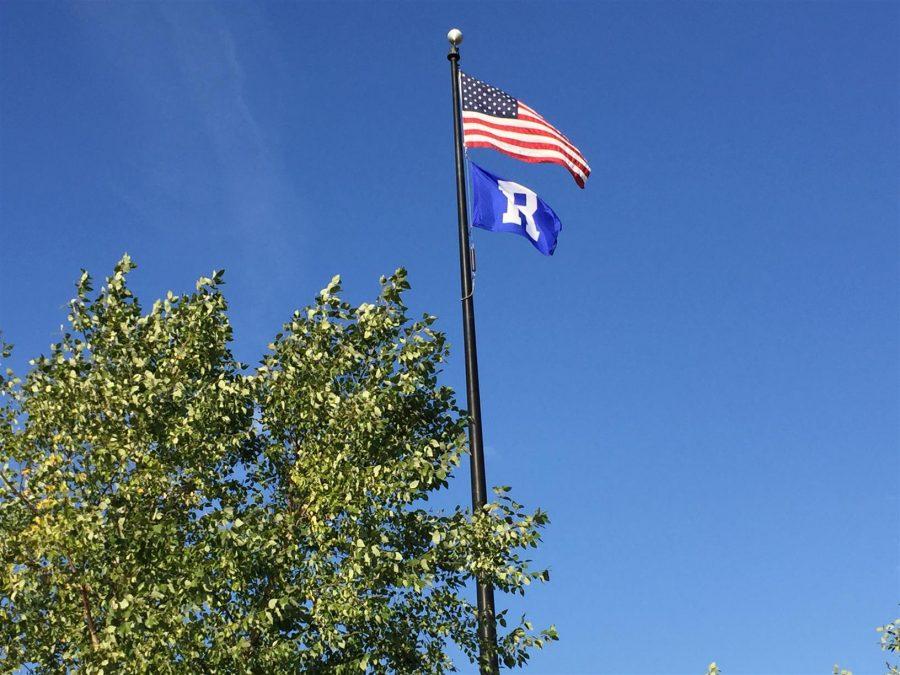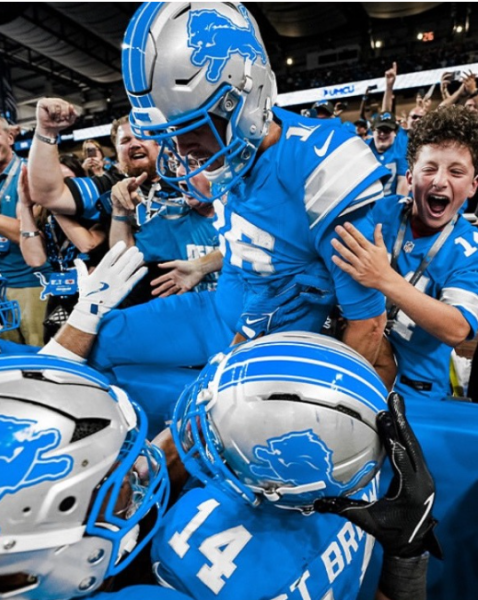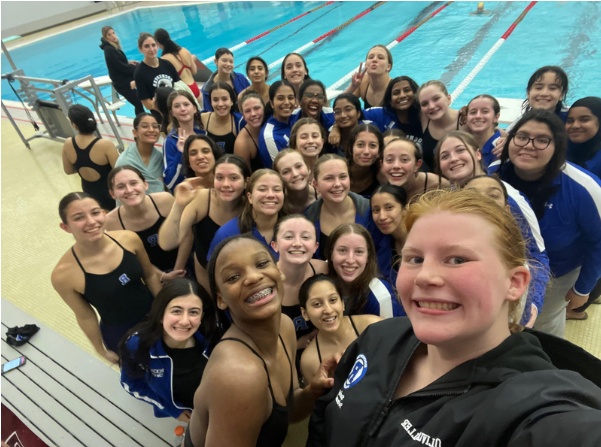Taking a Knee During The National Anthem
October 22, 2016
Colin Kaepernick, quarterback of the San Francisco 49ers, took a knee during the national anthem on Aug. 14, sparking a national debate. He was protesting the unnecessary murders of black men and women and the oppression they face due to racial tensions. After his action, many high schools around the country began protesting, calling it the “Kaepernick effect,” leading to student suspensions in some cases.
In Hamtramck, Mich., a Detroit Edison student took a knee. Along with high schools protesting, players on other NFL teams have joined. Brandon Marshall of the Denver Broncos and Robert Quinn of the Los Angeles Rams joined Kaepernick in taking a knee, and a handful of University of Michigan players raised their fists in protest as well. Raising a fist in protest dates back to 1968 during the Olympics when sprinters Tommie Smith and John Carlos protested the anthem for a human rights salute.
The major debate surrounding the protests is whether or not it is disrespectful to the United States. Some people, such as senior Logan Mierzwa, believe it is uncalled for to goes against something which gave citizens their freedom.
“It is acceptable, but I don’t think that they should do it,” Mierzwa said. “The fact that they have that right is the reason they should stand during the national anthem.”
Senior Drew Boudreau disagrees and thinks Kaepernick’s actions are not acceptable.
“I don’t support his [Kaepernick’s] actions,” Boudreau said. “If he wanted to help the fight to end discrimination against African Americans, he could use some of his millions of dollars to help the poor and improve the rough areas.”
Though there are those who argue that the protests are unacceptable, others believe there is a constitutional right to protest. The right to peacefully assemble/protest is listed in the Bill of Rights in the First Amendment which also lists freedom of speech, religion, press and speech.
“It’s not violent [the protesting],” former Democratic House of Representative candidate Joanna VanRaaphorst said. “He [Colin Kaepernick] loves America but it’s a work of progress.”
Many people want more consideration brought to the issue. Junior Alexus Utley thinks that protesters should kneel during the anthem.
“They [the protesters] want to bring attention to police brutality,” Utley said. “These people [African Americans] are being brutally murdered.”
Another problem lies on what level a sports player is on, such as school versus NFL, and whether they should be allowed to kneel. Teams are owned by different people and companies, so it is up to the owners’ standards to decide if the protest is acceptable. Senior Akash Vaghasia discusses the rules regarding standing for the anthem in the NFL, where players are encouraged to stand but are not required to do so.
“The rules say they [the NFL] could actually protest the national flag,” Vaghasia said. “They don’t have to stand.”
Senior Ari Patterson believes the issues those who kneel are trying to highlight are large enough to protest.
“I would do something differently, but I feel like it’s pretty serious and major,” Patterson said. “I wouldn’t attack the flag, and I think he’s [Colin Kaepernick] trying to make awareness of the people of America who demand change.”
Bringing it back to the past, many people believe protesting has helped create change in American society. Protesters who went against the norm were women, laborers, and African Americans to fight for civil rights.
“Women wouldn’t be voting if people didn’t ‘take a knee,’” VanRaaphorst said. “They got beaten and jailed for years.”







